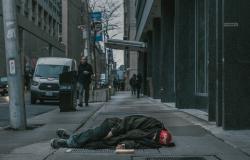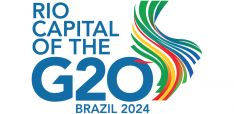An Unethical, Minimal, and Cruel Welfare State: COVID-19 and the Makings of a Demoralized U.S. Citizenry

Helidah Didi Ogude argues that a long history of neoliberal state policies have left a US welfare system unfit for purpose and a citizenry wrongly held responsible for their own precarity.
Speaking to supporters at a 2017 rally in Missouri, US President Donald Trump promised that welfare reform would be one of his administration’s priorities. Echoing and reinscribing strongly held neoliberal suspicions about those that seek social welfare, he said: “I know people, they work three jobs and they live next to somebody who doesn’t work at all. And the person who’s not working at all and has no intention of working at all is making more money and doing better than the person that’s working his and her ass off. And it’s not going to happen. Not going to happen!”
In April 2018, Trump signed an executive order directing US federal agencies to strengthen the work requirements for various welfare programs, including food stamps, Medicaid, and housing programs. Trump Agriculture Secretary Sonny Perdue succinctly captured the position of the Administration, claiming that “long-term dependency has never been part of the American Dream.”
This “American Dream” is a core mythology of neoliberalism, one which implicitly and explicitly endorses individualism, self-reliance, and the cardinal idea that all can make it if they simply work hard. These myths have been successful in creating not only an unethical, minimal, and mean welfare state, but also a largely insecure and demoralized citizenry. Prior to COVID-19-related shutdowns, and as of March 13, there were already 7.1 million unemployed Americans. With the more than 22 million workers that have since become unemployed, the real US unemployment rate is closer to 18%. This alarming figure reflects an already existing minimal and apathetic welfare state that, prior to this crisis, drove a vast number of Americans to the margins of the US economy and excluded and shamed them from seeking the social welfare they require to build resilience against such shocks. In the current political moment, this economic precarity is sustained by Trump’s right-wing administration that seeks to bring about an increasingly small state and a bloated and powerful corporate elite. However, those on the “other side of the aisle” have frequently assisted in this endeavor.
In this context, the term neoliberalism requires clarification - while it is a widely used phrase, it is often poorly understood and misapplied. Neoliberalism constitutes a set of political economy practices that assume human well-being is best nurtured through strong private property rights, free markets, and free trade. It prescribes individual freedoms and needs as supreme. A neoliberal state represents the interests of multinationals and financial capital; its interventions in the market, if any, are restrained to a minimum. Author and academic David Harvey notes that neoliberalization is a “political project to re-establish the conditions for capital accumulation and to restore the power of economic elites.” The critical contention here is that the process of neoliberalization, the bedfellow of free market capitalism, allows the dominant class to entrench and expand its social control.
COVID-19 and the dire socioeconomic damage it’s inflicting on so many in the U.S. have made it important to reflect on the ethics of the welfare system and whether it advances the political project of creating a “decent society.” In trying to understand this moral space, a good starting point is the work of political scientist Sanford Schram. In his chapter “The Deep Semiotic Structure of Deservingness,” Schram tries to make sense of the discourses that have enabled the framing of welfare dependency as a “manifestation of the pathologies of the poor, and most especially black, underclass.” These in turn led President Bill Clinton and the Republican Congress to declare “The end of welfare as we know it” in 1996. Schram argues that the discourse espoused then, as well as today’s popular assumptions, are anchored in the contrast between “two central subjectivities: the deserving autonomous, self-sufficient individual and the underserving dependent who fails to exhibit the independence assumed to be central in the making of the liberal citizen who can be counted on to act for himself or herself.”
These two pervasive subjectivities reflect some of neoliberalism’s central tenets. They are useful entry points for understanding the way some economists as well as others engaged in public policy formulation theorize the role of the state. Critically, although Trump’s administration is discursively committed to the assumptions underpinning those two subjectivities, their assumptions are not held exclusively by the right-wing populist class, but also by others on the political spectrum (such as the Democrats).
 Neoliberalism and The Perversity Thesis
Neoliberalism and The Perversity Thesis
In the same chapter, Schram argues that social welfare discourse in the US has been dominated by the so-called perversity thesis. This idea, which originated with political economist Albert O. Hirschman, draws on both classical liberal economic theories and Christian morality. It asserts that “contrary to the apparent reality that offering financial aid to the ‘poor’ was a kind of charitable act of assistance, such interventions actually undermined the natural order of things and corrupted individuals who took such succor so that they lost the ability to practice self-discipline and to exercise personal responsibility.”
Two assumptions underlie this thesis. First, the term natural order of things implies that government intervention (a seemingly benevolent “charitable act”) necessarily disrupts a so-called ordinary way of functioning – that is, a society in which the market determines welfare outcomes and the state plays a minimal role at most. For advocates of a neoliberal state, the COVID-19 virus and the attendant request for unemployment benefits are ostensibly an instance of market failure, a disruption of the “way things should work”. As such, only now is the government’s temporary intrusion in the natural order justifiable.
Second, the perversity thesis implies that those in need of welfare are in that position because of a lack in “self-discipline.” This pathology, however, is not ascribed indiscriminately. It is deeply gendered and racialized. For most, the figure of welfare is the so-called welfare queen: a promiscuous, ill-disciplined African American woman with a cigarette in her mouth, a baby on her hip, and many other malnourished children at her feet. Despite the fact that most welfare benefit recipients are in fact white, racial and ethnic minorities as well as women remain the primary targets of this stigmatization and shame.
The notion that reliance on welfare is caused by a lack of self-discipline ignores the structural and historically contingent sociopolitical and economic ideologies and practices that have produced contemporary income inequalities and chronic joblessness. These same ideologies and practices are all inflected by race and gender. In a sense, it has become widely understood that the widespread impoverishment of US minorities is of their own doing, a notion discursively reiterated by mainstream media and certain policy actors. This, as activist and scholar Keeanga-Yamahtta Taylor says, “rationalizes the social and economic disparities between African Americans [and other marginalized communities] and the rest of the population and absolves the economic and political systems from any real responsibility.” This is a crucial point. For example, minorities are over-represented in confirmed COVID-19 cases across the US, yet this discursive pretext places blame on the minorities themselves for contracting the disease. Meanwhile, it ignores pre-existing conditions such as housing and food insecurity that limit minorities’ ability to engage in physical distancing measures, all the while absolving the government of any responsibility.
In contemporary discourse, the perversity thesis uses mythologies like the American Dream to affirm a reverence for self-reliance on the one hand and a deep suspicion of perceived individual failure on the other. This is echoed by Trump himself, who frequently asserts that he is a self-made businessman who hates the idea of failing. Trump, as well as many others across the political spectrum, characterize failure as an indigent quality, one that reflects an individual’s inabilities, rather than the broader environment that affects a person’s opportunities and welfare outcomes. In doing so, they sustain the falsity that poverty is a legitimate outcome or an unfortunate, inevitable reality. Poverty is portrayed as a badge of failure rather than a consequence of economic structure. In this line of thinking, notions of individualism, inequality, and hyper-consumerism – widely accepted neoliberal norms and values that emphasize the individual, entrepreneurial qualities, material difference, and excess – are accepted forms of truth, of reality, and represent the way many people view the world and evaluate others.
An Unethical, Mean and Minimal Welfare State: Makings of a Demoralized Citizenry
At the 2017 Conservative Political Action Conference, Trump claimed that “it’s time for all Americans to get off of welfare and get back to work.” This very brief quote contains important ethical considerations. On the one hand, Trump denigrates being on welfare, while also unequivocally asserting that the sole solution to overcoming a position of poverty is getting back to work. There are two questionable arguments at play here. First, he claims that the indecent jobs on offer could in fact propel people out of poverty and need for welfare. Second, he suggests that returning to work is for Americans’ own benefit, rather than a guise to ensure that the working class sustains an economy that benefits the corporate elite. In his book Market Reasoning as Moral Reasoning: Why Economists Should Re-engage with Political Philosophy, political philosopher Michael Sandel sharply criticizes this kind of ethical reasoning, noting that some of the most “corrosive effects of markets on moral and civic practices… involve the degradation that can occur when we turn all human relationships into transactions.” In other words, the neoliberal state subordinates the lives of everyday people to a mechanistic and unfeeling market system.
The combination of welfare’s profound stigmatization and an inability to sustain a decent life through one or more jobs can have dire consequences for the mental well-being and self-perception of welfare recipients. Research shows that identity and self-perception have a significant influence on decision-making. For instance, stigmatized individuals’ behavior and actions risk reinforcing stereotypes, distorting their performance as a result.
Schram affirms this in his analysis of welfare reform in the 1990s, noting that “just like any good discourse, ‘welfare dependency’ then becomes its own self-fulfilling prophecy, making itself real, manufacturing the reality that it claims pre-existed it.” The poor (or those in precarious economic positions) internalize the notion that they are at fault for their poverty, and that they are undeserving of support. They also internalize that to escape poverty, their allegedly deficient behavior requires changing. This is the perverse generation of a demoralized citizenry.
For policymakers, framing welfare in this way influences their policy emphasis and priorities. The social welfare reforms of Bill Clinton’s administration, continued by Republicans since, have shifted the location of welfare discourse. It is no longer about the redistribution of income to the poor. It has instead become a “behavioral-modification regime” that seek to make individuals “self-disciplined so that they, in turn, will become self-sufficient.” The dependency metaphor thus serves to distract the public and policymakers from the underlying issues that create dependency to begin with: structural poverty, income inequality, inadequate education and jobs, sexism, racism, and more. To quote Schram, this discourse “operates more like a metonymy in which a contiguous reference point is emphasized rather than the original object of concern. The poverty that precedes welfare dependency is ignored.” (emphasis my own)
COVID-19 has laid bare the economic fragility of so many. Yet, it is neoliberalization that enabled this fragility in the first place. Its roots are in a demoralized citizenry, misguided policymakers, and a market-based system that primarily sustains the capital of the elite class, while the pervasively touted benefits and pursuit of the American Dream are used to intellectually and politically pacify the public. And so, as Trump insists that the US economy re-open so Americans can “get back to work” because the US “is based on that,” it should be underscored that prematurely returning to work at the expense of one's health and the health of others, is a decision informed by economic precarity and the internalized shame of prolonged reliance on unemployment benefits. What is absent, however, is an acknowledgment that this logic is twisted: it is not you that has failed, but rather the neoliberal state that has failed you.
Helidah Didi Ogude, originally from South Africa & Kenya, is a PhD Candidate in Urban and Public Policy at The New School, New York and is also an alumna of the Global Governance Futures– Robert Bosch Foundation Multilateral Dialogues program.
Photo by Harrison Haines from Pexels


